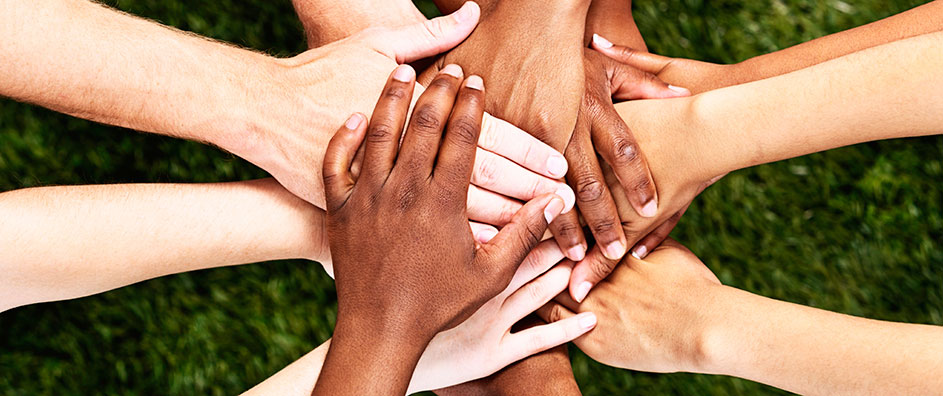The conundrum of racism continues to be a pressing issue in societies worldwide, compelling individuals to reassess their beliefs and actions. The Bahá’í teachings, renowned for their advocacy of unity and social justice, offer profound insights into combating prejudices and fostering a more equitable world. The fundamental principle underlying these teachings is that humanity is fundamentally one; this premise paves the way for actionable steps that individuals can take to combat racism on personal and communal levels.
First and foremost, self-reflection stands as a critical step in this journey towards eradicating racial biases. Individuals are encouraged to engage in a thorough introspection, examining their own beliefs, attitudes, and behaviors regarding race. This process may reveal subconscious biases that have been ingrained over time, potentially influencing one’s interactions with others. It is essential to acknowledge that racism is not merely a societal problem but, importantly, an individual one. By confronting our own prejudices, we equip ourselves with the awareness necessary to cultivate empathy and understanding.
Moreover, one of the most efficacious methods to address racism is through education. The teachings underscore the importance of acquiring knowledge about other cultures, histories, and experiences. This pursuit serves two significant purposes: firstly, it facilitates a deeper appreciation of cultural diversity, and secondly, it dispels myths and stereotypes that often perpetuate discrimination. Participation in community workshops, literary discussions, and cultural events can enrich one’s understanding and provide a platform for engaging with diverse perspectives. The act of educating oneself is a powerful tool, creating opportunities to build bridges rather than barriers.
Equally important is the act of dialogue. Engaging in conversations about race, however uncomfortable, is a necessary endeavor. The Bahá’í teachings emphasize consultation as a method of reaching collective understandings while fostering a spirit of unity. Creating safe spaces for open discussions enables individuals to express their experiences, hear others’ stories, and collectively explore the complexities surrounding race-related issues. This exchange not only deepens relationships but also nurtures a shared commitment to dismantling systemic racism.
In addition to introspection and education, individuals can embody the Bahá’í principle of service to humanity. Acts of service can take various forms, from volunteering with organizations that promote racial equality to actively participating in initiatives aimed at combating injustice. Such involvement demonstrates a commitment to creating a more just society while reinforcing the fundamental message that every human being is worthy of dignity and respect. Engaging in service projects expands one’s worldview, highlighting the interconnectedness of humanity and the imperative to act against oppression.
Furthermore, advocacy plays a crucial role in challenging the structures that uphold racism. Aligning oneself with movements that seek equality and justice not only amplifies marginalized voices but also fosters a collective ethos that seeks to eradicate discriminatory practices. Individuals can contribute by raising awareness through social media platforms, attending rallies, or advocating for policy changes that promote equity. In doing so, one reinforces the Bahá’í commitment to promoting justice and equality, identifying that true change necessitates both personal and systemic transformation.
Moreover, fostering inclusive environments, whether in workplaces, educational institutions, or community groups, is essential. The Bahá’í teachings emphasize the significance of unity in diversity; this principle can be enacted by ensuring that all individuals, regardless of race, feel valued and included. Policies that promote diversity, equity, and inclusion within these spheres cultivate environments where dialogue can flourish, and shared experiences can be cultivated. Moreover, diversified teams have been shown to enhance creativity and problem-solving, further dispelling the fallacy that one race is superior to another.
Concurrently, the Bahá’í teachings exhort individuals to embody virtues such as kindness, compassion, and justice. These qualities can serve as tools in the daily interactions that individuals have with others, reflecting the principles of humility and understanding. Acts of kindness, no matter how small, can incite a ripple effect within communities, fostering a culture of respect and care towards those who may be different. Engaging with others in a respectful and compassionate manner can lead to the dismantling of preconceived notions and biases.
Lastly, spiritual growth is an essential dimension of the Bahá’í teachings. Cultivating an inner life that is imbued with love and appreciation for all humanity empowers individuals to act justly in the face of discrimination. Prayer, meditation, and reflection on the inherent worth of every individual can profoundly transform one’s perspective. This spiritual practice reinforces the belief that promoting unity is not merely a social duty but a sacred responsibility, urging individuals to rise above societal divisions.
In summation, tackling the complex issue of racism requires a comprehensive and multifaceted approach rooted in the Bahá’í teachings. By engaging in self-reflection, pursuing education, participating in dialogue, committing to service, advocating for justice, fostering inclusivity, embodying virtues, and nurturing spiritual growth, individuals can play an integral role in dismantling racism. These teachings not only promote a shift in perspective but also kindle curiosity about the shared human experience. Ultimately, each step taken towards understanding and unity contributes to the realization of a world characterized by peace and justice for all.
